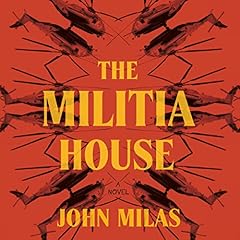
No-No Boy
No se pudo agregar al carrito
Add to Cart failed.
Error al Agregar a Lista de Deseos.
Error al eliminar de la lista de deseos.
Error al añadir a tu biblioteca
Error al seguir el podcast
Error al dejar de seguir el podcast
 Exclusivo para miembros Prime: ¿Nuevo en Audible? Obtén 2 audiolibros gratis con tu prueba.
Exclusivo para miembros Prime: ¿Nuevo en Audible? Obtén 2 audiolibros gratis con tu prueba.Compra ahora por $20.56
-
Narrado por:
-
David Shih
First published in 1956, No-No Boy was virtually ignored by a public eager to put World War II and the Japanese internment behind them. It was not until the mid-1970s that a new generation of Japanese American writers and scholars recognized the novel's importance and popularized it as one of literature's most powerful testaments to the Asian American experience.
No-No Boy tells the story of Ichiro Yamada, a fictional version of the real-life "no-no boys". Yamada answered "no" twice in a compulsory government questionnaire as to whether he would serve in the armed forces and swear loyalty to the United States. Unwilling to pledge himself to the country that interned him and his family, Ichiro earns two years in prison and the hostility of his family and community when he returns home to Seattle.
As Ozeki writes, Ichiro's "obsessive, tormented" voice subverts Japanese postwar "model-minority" stereotypes, showing a fractured community and one man's "threnody of guilt, rage, and blame as he tries to negotiate his reentry into a shattered world".
©1976 Dorothy Okada (P)2018 TantorLos oyentes también disfrutaron:




















Featured Article: 10 Audiobooks to Listen to on the Day of Remembrance
In 1942, President Franklin Roosevelt signed Executive Order 9066, mandating the removal of Japanese Americans from their homes. Nearly 120,000 Japanese immigrants and native born Japanese Americans were imprisoned in concentration camps for the duration of World War II. We need to bear witness to the atrocities committed by the United States government and the pain our leadership caused innocent men, women, and children of Japanese heritage.
Las personas que vieron esto también vieron:











thoroughly enjoyed
Se ha producido un error. Vuelve a intentarlo dentro de unos minutos.
an interesting take on some of the untold history of Japanese Americans in the Northwest during WW2
Another Aspect
Se ha producido un error. Vuelve a intentarlo dentro de unos minutos.
Classic American story
Se ha producido un error. Vuelve a intentarlo dentro de unos minutos.
Riveting
Se ha producido un error. Vuelve a intentarlo dentro de unos minutos.
Nuanced novel about Nisei & Sansei
Se ha producido un error. Vuelve a intentarlo dentro de unos minutos.



